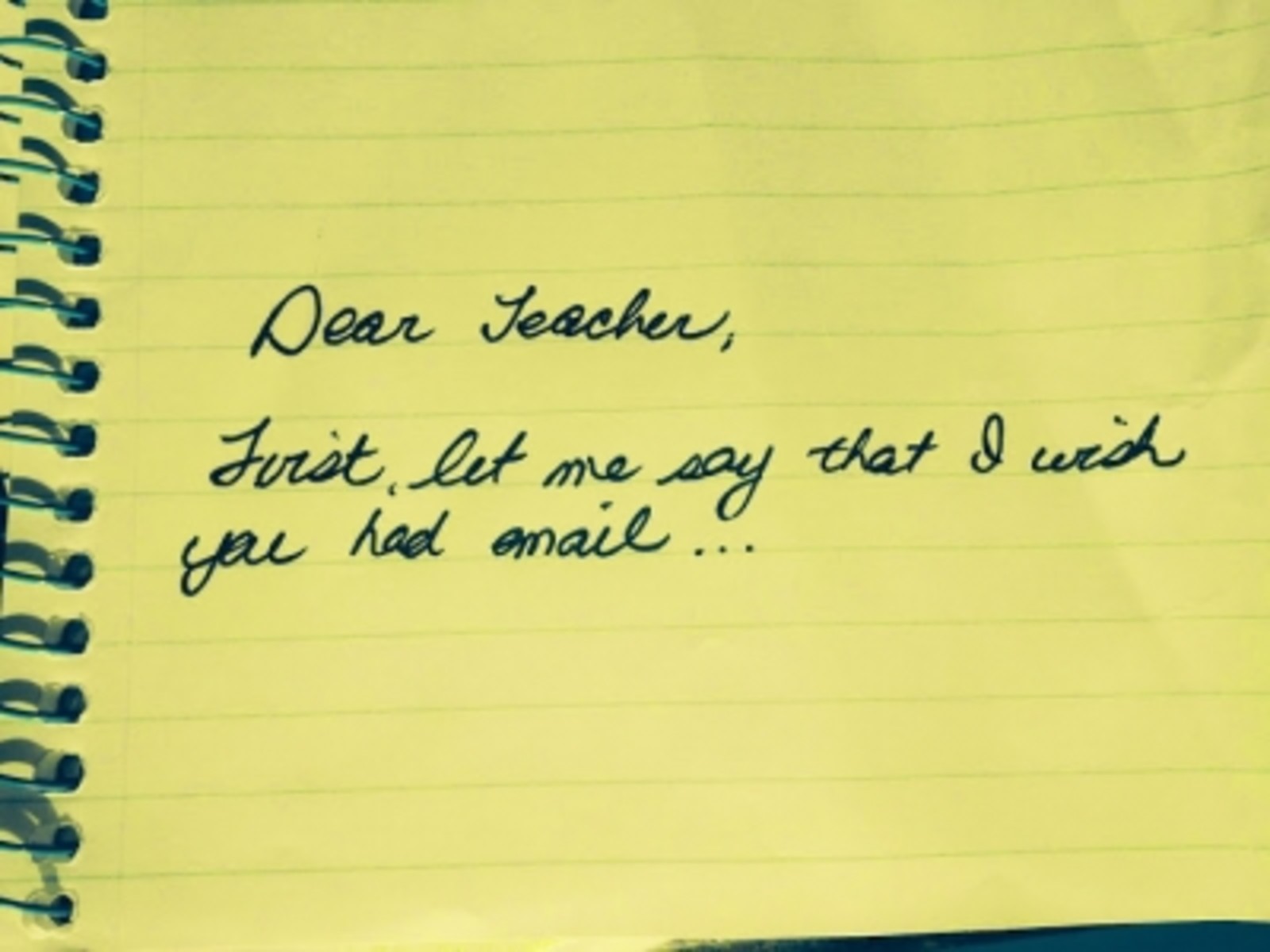My son's teachers shun email

I wasn't too happy in September when I found out my son's 1st-grade teachers have no email. The only other person in my life I can't email is my landlord, and I'm pretty sure he doesn't want to hear from me.
Last year in kindergarten, Noodle's 26-year veteran teacher had not only email, but a Twitter feed and Instagram account. So I was just plain confused when I read via a typed letter in my son's backpack on the first day of school that "all correspondence must be in written form." Huh? Like, with a pen?
At drop-off the next day, most parents' reactions were the same. "Notes get lost," one mom said, shaking her head. "When I write to the teacher, I want a record and I want it time-stamped." Another told a story of a former teacher who refused to receive emails from parents, but would on occasion email them when she needed something, like say, last-minute field-trip chaperones. "Why should parents have to function on a two-day time delay?" she asked.
I vented to my friend, a working professional and mom, about some problems Noodle had been having at recess and the fact that I couldn't email his teachers to take care of it quickly. This whole no e-mail thing is a cop-out, I told her. Communicating with families is part of a teacher's job, and this kind of apathy is what drives middle class families from schools. This is why Fariña is falling all over herself to assure parents that they matter.
She disagreed. She said teachers have enough to do, without fielding emails from dozens of Type A parents, many of whom (not me, of course) are just crazy. "Well, don't you have clients who annoy you?" I asked her.
"Yes," she said. "But I get paid a hell of a lot more than teachers."
So, that night I stepped off my soapbox and wrote a note about recess—actually I wrote it twice, trying a little harder the second time to make sure that my letters slanted evenly. But I also e-mailed Noodle's kindergarten teacher from last year for advice. And the parent coordinator. I just couldn't help it.
As the weeks go by, I've been able to step back and trust a little more. Instead of rattling off an email any time the slightest worry crosses my mind, I'm taking a moment to think: Is this really worth putting pen to paper? My handwriting is improving from all the note-writing, and I've gotten a few phone calls for specific issues, which I've appreciated. Noodle's teachers really do seem caring and on top of things. Only one note ended up in another kid's backpack.
In this age of constant communication I understand the desire for a little peace and quiet, and I can see why a teacher might want to focus less on superficial interactions along the lines of "I'm worried that Jimmy didn't finish his sandwich today" and "Kylie luv'd the field trip!!" and get to the real business of teaching. Is email, or some other online communication tool, truly necessary to keep an efficient flow of information between teachers and parents? Does not having that 24-7 access to teachers really hurt our ability to parent or does it just hurt our feelings?
As parents push to make their voices heard—and some schools must push to get busy parents involved—I imagine there will be less opportunity for teachers to choose not to communicate via email. Principal Eve Irizarry of PS 414 Brooklyn Arbor told Insideschools on a school visit this fall that she makes email mandatory for teachers. "We ask teachers to respond within 24 hours," she said. "As a parent, you have to have a quick and easy way to reach out to your child's teacher."
The United Federation of Teachers told me (via email) "The UFT believes that parent engagement is important and that is why we negotiated time specifically for that in our new contract with the DOE [Department of Education]. We encourage the DOE to provide teachers with adequate computer access so that they can email parents, as necessary and appropriate, during this time."
And what does the DOE think? Well, I emailed them and called. Maybe it's time for a note ....
Please Post Comments